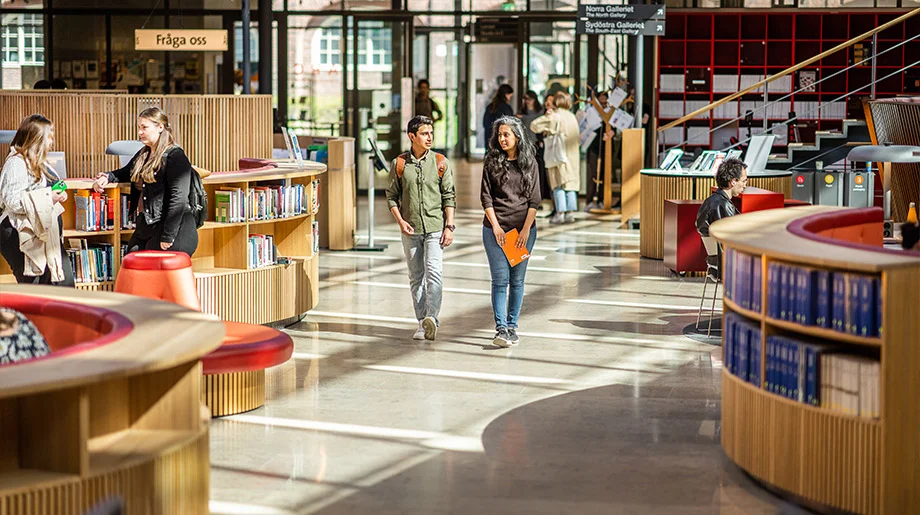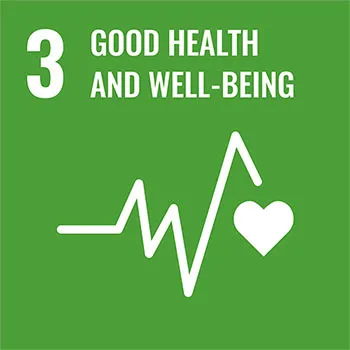MSc Molecular Science and Engineering
The master's programme in Molecular Science and Engineering provides in-depth knowledge and training in advanced techniques in different areas of chemistry for careers in industry or academia. Emphasis is placed on the design, synthesis, characterization and applications of molecules and materials. The programme also relates to sustainability, emphasising energy and the environment, safety, and innovation.

Molecular Science and Engineering at KTH
The two-year master's programme in Molecular Science and Engineering provides a broad understanding of chemistry and specialised knowledge and skills in some chosen areas. A wide range of topics are covered, including synthetic chemistry (organic chemistry and inorganic chemistry), materials chemistry, analytical chemistry, spectroscopy, chemical sensing, computational chemistry, radiation chemistry, food chemistry as well as surface, corrosion and colloid chemistry. During your studies, you will become acquainted with several advanced analytical techniques. You will also carry out project work, and practise your written and oral communication.
The programme involves choosing from an extensive selection of courses followed by a degree project. There is considerable freedom and an opportunity to create a personalised curriculum that focuses on individual areas of interest and allows for a specialised degree. Examples of specialisations include the following profiles:
- Organic chemistry
- Inorganic chemistry
- Materials chemistry
- Analytical chemistry, chemical sensing, and spectroscopy
- Computational chemistry
- Surface, corrosion and colloid chemistry
- Radiation chemistry
- Food chemistry
Other specialisations may be designed, where guidelines and recommendations for course combinations can be given.
The opportunities to do coursework or complete the degree project abroad are good, and there are many universities worldwide to choose between. The programme is strongly linked to the research at the School of Engineering Sciences in Chemistry, Biotechnology and Health, and especially the Department of Chemistry. Thus, you will come in direct contact with research conducted at KTH. The programme deals with real-world challenges, such as sustainability, energy, and the environment.
This is a two-year programme (120 ECTS credits) given in English. Graduates are awarded the degree of Master of Science. The programme is given mainly at the KTH Campus in Stockholm by the School of Engineering Sciences in Chemistry, Biotechnology and Health.
Courses in the programme
The courses in the programme cover topics such as synthetic chemistry (organic chemistry and inorganic chemistry), materials chemistry, analytical chemistry, advanced spectroscopy, chemical sensing, computational chemistry, radiation chemistry, food chemistry, electrochemistry and as well as surface, corrosion and colloid chemistry.
Courses in the programme Molecular Science and Engineering
Future and career
Specialists in all aspects of chemistry are always in demand, and career prospects are strong. It is a very wide field, with areas including pharmaceuticals, life sciences, medical engineering, biotechnology, environmental technology, forensics, fine chemicals, consumer products, cosmetics, polymers, pulp and paper, food and agriculture, petroleum, mining and materials, microfabrication, and energy. There is also an increased need for consultants with specialist knowledge of patenting, scientific writing, venture capital and marketing, expertise for governmental bodies and authorities, as well as for doctoral students within the area. Graduates from the programme have, for example, gone on to positions as research scientists, PhD students, product managers, quality assurance officers, and sales representatives at workplaces, such as AstraZeneca, Outokumpu, RISE, and Boston Consulting Group. Programme graduates are also found at numerous startup companies, both as owners and employees.
Sustainable development
Graduates from KTH have the knowledge and tools for moving society in a more sustainable direction, as sustainable development is an integral part of all programmes. The three key sustainable development goals (SDGs) addressed by the master's programme in Molecular Science and Engineering are:



The programme will provide you with knowledge and expertise in both fundamental and applied aspects of, for example, organic chemistry, inorganic chemistry, analytical chemistry, advanced spectroscopy, and materials chemistry. These skills open up future job opportunities in fields such as drug development, biocompatible materials, sensors for detecting biological molecules, the development of advanced medical instruments, and sustainable chemistry.
As a student, you will acquire both fundamental knowledge of and expertise in specific renewable and environmentally friendly energy sources, with potential future jobs in the development, optimisation, and production of the modules in sustainable future energy systems, such as solar cells, hydrogen fuel cells and batteries, but also material components for energy production in wind power stations, for example. This is facilitated by gaining an understanding of the fundamental processes involved at a molecular level.
Faculty and research
The research at the School of Engineering Sciences in Chemistry, Biotechnology and Health spans a wide range of topics, such as the development of solar fuels and fuel cells as well as other environmentally friendly energy sources, how to store nuclear waste in a safe way, the design of novel polymers for industrial use, how to protect metal surfaces against corrosion, the use of sustainable materials in new products, and how friction can be explained on a molecular level.
The Department of Chemistry carries out fundamental and industrially related research and many projects are of interdisciplinary character. Three significant research areas at the department are Energy and Environment, Functional Materials and Surfaces, and Bioactive Molecules.

